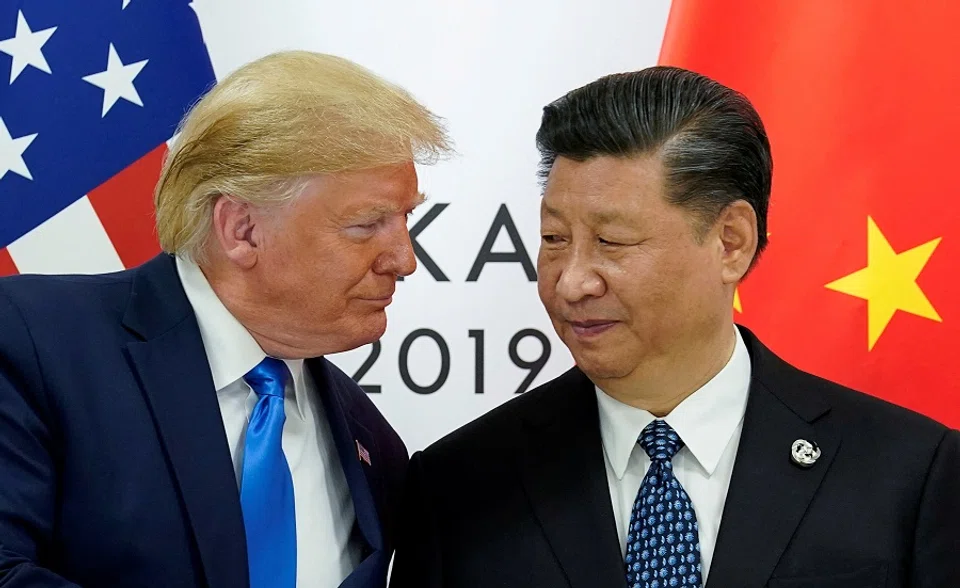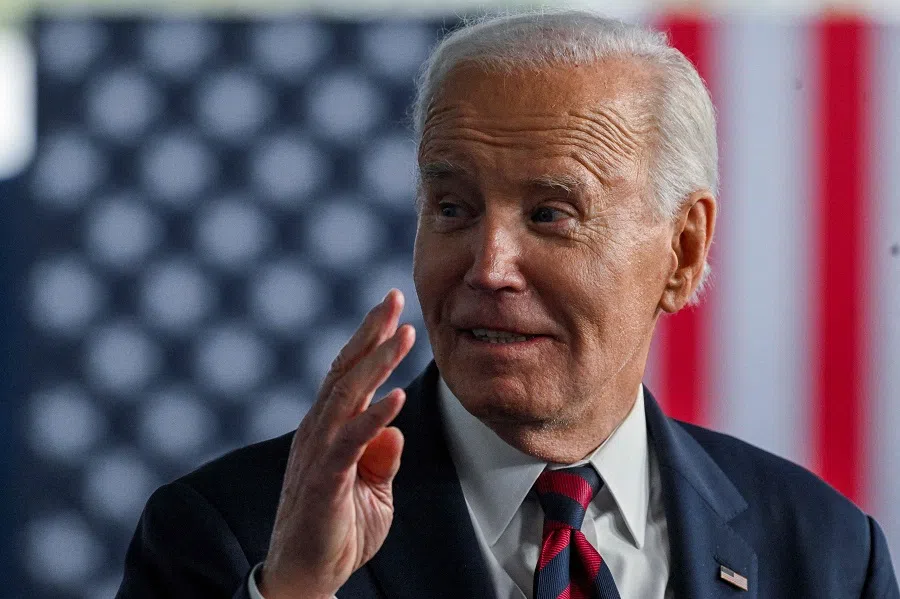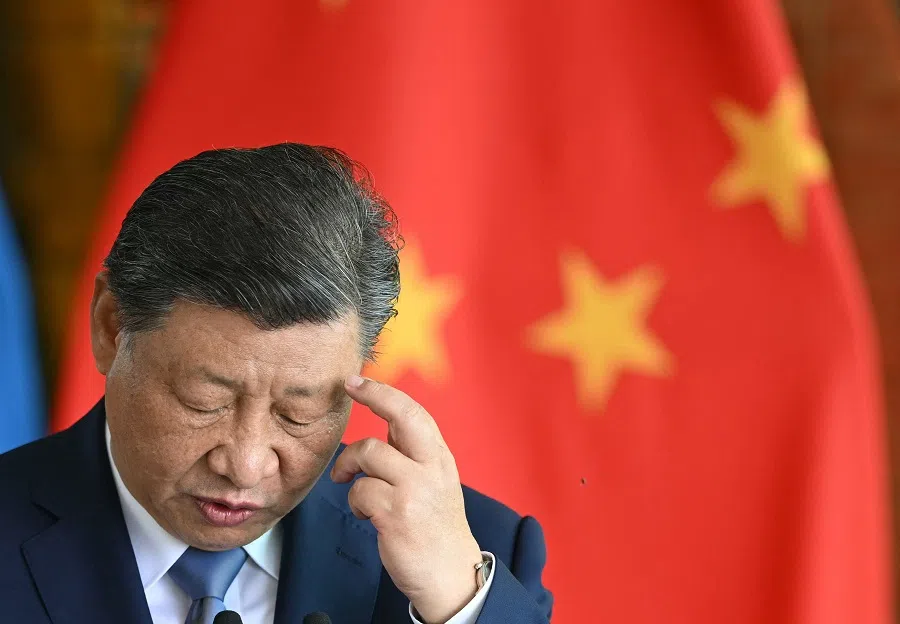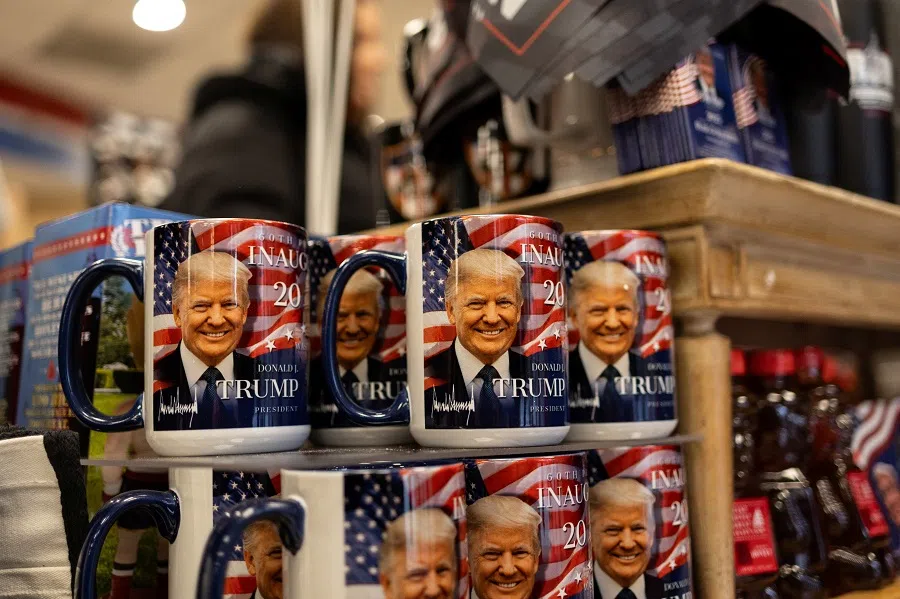Xi-Trump phone call: New impetus for US-China relations?
Following Chinese President Xi Jinping and US President-elect Trump’s phone call just before inauguration day, US-China relations seem to be finding new beginnings, with Trump indicating his eagerness to meet Xi in person. Lianhe Zaobao correspondent Yu Zeyuan tells us more.

A phone call between Chinese President Xi Jinping and US President-elect Donald Trump on 17 January has introduced a new dynamic to long-deteriorating China-US relations. Latest reports suggest that the leaders of the US and China may make mutual visits in the next few months.
According to The Wall Street Journal (WSJ), Trump informed his advisers that he plans to visit China after taking office. Sources familiar with the issue said that Trump hopes to visit China within the first 100 days of his presidency.
The WSJ report also mentioned that Trump and Xi discussed the possibility of meeting in person through their respective representatives. One option is for Trump to invite Xi to visit the US.
A replay of the past?
The last mutual visit between US and Chinese leaders occurred during Trump’s first term in 2017. In April 2017, Xi accepted an invitation from Trump, who had then been in office for less than three months, to meet at Mar-a-Lago in Florida. In November 2017, Trump made a three-day state visit to China, and received a high-level reception — the two countries’ businesses signed deals worth US$253.5 billion.

However, just over six months after his visit to China, Trump initiated a trade war against China. Subsequently, China-US relations have been on a constant decline, with both sides engaging in a comprehensive struggle. After Joe Biden became US president, he not only continued Trump’s policies to pressure China, but also became only one of two US presidents not to visit China since the establishment of diplomatic relations between the US and China in 1979.
Now, Trump is set to return to the White House. In lieu of Trump’s tough China policy during his first term, the outside world generally held a pessimistic view of China-US relations in years to come.
Trump’s unpredictability could bring new possibilities
Yet a distinct trait in Trump’s style is his unpredictability. Just as external observers speculated how Trump and his hawkish team might “tie down” China on issues such as tariffs, Trump had a substantive phone conversation with Xi.
Trump’s mention of meeting soon does not necessarily mean waiting for international meetings such as the 2025 APEC summit or the G20 summit. It could involve inviting Xi to the US, or Trump visiting China...
Trump revealed that he and Xi discussed balancing trade, fentanyl and TikTok, among many other topics. Trump’s social media post stated: “The call was a very good one for both China and the USA. It is my expectation that we will solve many problems together, and starting immediately.”
According to the Chinese press, Xi said that both he and Trump place great importance on interaction with each other and hope that China-US relations would have a good start in the new US presidential term. He also called for greater progress in China-US relations at a new starting point. On his part, Trump said he cherishes his “great relationship” with Xi, and hopes to continue to maintain dialogue and communication, and looks forward to meeting Xi soon.

From the content of the phone call released by both sides, it appears that Trump and Xi shared a generally positive conversation. Xi hopes for a “good start” and a “new starting point” with Trump, while Trump directly looks forward to a meeting with Xi soon.
... the US needs to maintain communication and cooperation with China.
Good sign for China
Trump’s mention of meeting soon does not necessarily mean waiting for international meetings such as the 2025 APEC summit or the G20 summit. It could involve inviting Xi to the US, or Trump visiting China — this is in line with Trump’s usual style of unpredictability. Therefore, the WSJ report on the potential mutual visits by the China-US leaders may not be groundless.
For China, whether Xi is invited to visit the US or invites Trump to visit China, both are significant endeavours they would be happy to undertake. Even though the current China-US relationship is fraught with challenges and unlikely to return to the pre-first-term Trump era where cooperation outweighed competition, China has always prioritised its relationship with the US in its foreign policy, emphasising the importance of head-of-state diplomacy to guide bilateral relations, and advocating for essential “guardrails” to prevent the relationship from sliding into a greater crisis. Thus, it is highly unlikely that China would reject Trump’s request to visit the country.
For Trump, while suppressing China’s rise is the consensus among the US’s political arena, to address domestic issues such as trade deficits, unemployment and inflation, as well as global hotspots such as the Russia-Ukraine war, conflict in the Middle East and the situation in Northeast Asia, the US needs to maintain communication and cooperation with China.

At the same time, before leaving office, the Biden administration implemented a series of unprecedentedly harsh sanctions against China, issuing multiple restrictive measures targeting sectors such as semiconductors, new energy, textiles and non-ferrous metals. Meanwhile, China retaliated against the US sanctions with countermeasures related to rare earths and dual-use goods. These moves by the Biden administration are clearly intended to establish a comprehensive containment strategy against China for the incoming Trump administration to continue. However, Trump may not necessarily follow this established path.
... the deep-seated conflicts between China and the US, as well as the anti-China sentiment within American politics, are unlikely to change easily.
A realist approach from Trump might work
In fact, after several years of comprehensive China-US competition, although China has suffered significant setbacks, its overall national strength has not been noticeably weakened and continues to grow. A pragmatic Trump might realise that relying solely on suppression not only makes it difficult to contain China’s development but also inflicts greater economic costs on the US. Thus, Trump is hoping that a realist approach to dealing with China could yield more tangible benefits.
Last month, Trump claimed that China and the US can solve all of the problems of the world together. While this sounds pretty exaggerated, it demonstrates that Trump now recognises China’s significance more than he did during his first term in office.

Of course, given Trump’s characteristically unconventional approach, it is difficult to draw definitive conclusions about how he will handle relations with China solely based on his phone call with Xi. Even if Trump overcomes domestic pressure and facilitates a reciprocal visit between the Chinese and American heads of state this year, the deep-seated conflicts between China and the US, as well as the anti-China sentiment within American politics, are unlikely to change easily.
Also, it remains to be seen whether Trump’s hawkish foreign policy team will create challenges for China-US relations. For example, it is uncertain how US Secretary of State nominee Marco Rubio, whom China has sanctioned and labelled a “leader of the anti-China vanguard”, will engage with his Chinese counterparts.
Judging from the call between Xi and Trump, as well as the fact that Xi’s special representative, Chinese Vice-President Han Zheng, will attend Trump’s inauguration, it seems that China-US relations might not be as dire in the short term as some external observers had anticipated after Trump takes office. However, to say that China-US relations are thus ushering in a new and positive phase might still be overly optimistic.
This article was first published in Lianhe Zaobao as “中美关系即将迎来新气象?”.





